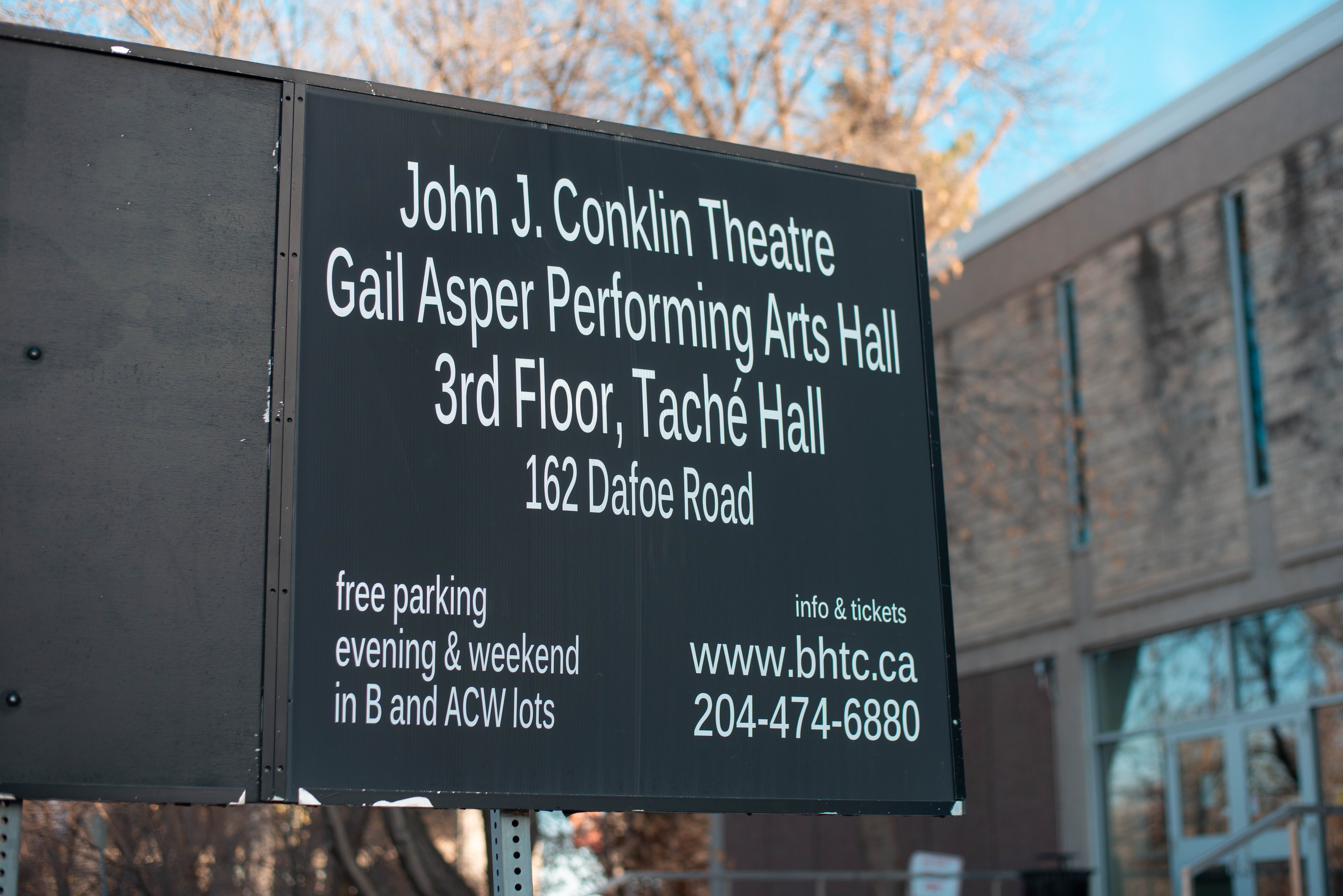Like many theatres across Canada and the world, the U of M’s Black Hole Theatre Company (BHTC) has put a pause to its regularly scheduled programming in light of the COVID-19 pandemic.
When the virus first touched down in Manitoba, the BHTC was running its mainstage production of Canadian playwright Judith Thompson’s Capture Me and, to abide by health and safety protocols at the time, implemented a limited audience size to encourage physical distancing.
Regrettably, the production eventually ended halfway through the run after five performances. This wasn’t the only cancellation the BHTC experienced this year — Scene Night, the yearly presentation of chosen scenes from each practical class, and Fire in the Hole, a showcase of new works by student playwrights, met the same fate.
Bill Kerr, an associate professor in the department of English, theatre, film and media and the theatre program coordinator, said this year’s season might look different as the province introduces new measures to combat the spread of COVID-19, but there are plans for it to go on.
“We are planning to mount a form of online staged readings in November […] we hope to bring back as many people as possible from last year,” said Kerr.
“The second show is being written by well-known Winnipeg playwright and theatre artist, Debbie Patterson — who taught our student playwrights last year — specifically to be performed online. We intend this one for January.”
A third mainstage production is also in the works and is slated for March and LunchBHAGGs, the company’s series of one-act shows, are expected to run online, but details are still to be announced.
The U of M’s theatre program is unique in that students in the practical classes — theatrical techniques: backstage and theatrical techniques: on stage — are graded on their participation in the mainstage shows, which meant that there were changes made to last year’s grading models.
“In some classes, grading was switched to other activities, in some, alternate assignments were arranged and, in others, performance presentations continued online,” said Kerr.
But how is theatre being taught, now that there are stricter public gathering and social distancing protocols?
The practical theatre courses, such as the aforementioned on stage and backstage as well as introduction to theatre, have been given special permission by the university to be taught in person.
Katrina Dunn, an assistant professor in the department of English, theatre, film and media, said that although it is a different experience, it is working so far.
“We are teaching in the [John J. Conklin Theatre] because that is the largest and best ventilated space we have to ensure social distance in class,” said Dunn.
“Even so, the class enrolments are too large to bring everyone in at once, so we have split the class into two groups, and each group comes in once every two weeks instead of once a week.”
“It means that we need to take some of the material we would teach in the studio and assign it to students to work on at home […] While there is less studio time for the students, there is more personal attention when they are in class.”
Dunn laments that this year’s students, especially the first-year students, are unable to experience and be exposed to the authentic live theatre performances that are essential to understanding the craft.
“While we can’t go to [an] actual live performance, the upside of the pandemic is that it has made a lot more recorded theatre universally accessible,” she said.
While there are debates on whether or not theatre on film is still theatre at its core, Dunn believes it is still possible to learn from the theatrical elements presented.
“Take the film of Hamilton, for instance. Here, they have not adapted the stage musical to the medium of film — they are not using realistic locations and live elements have not been rethought. They have simply invested […] resources in shooting the stage version very well,” said Dunn.
“So, while there are close-ups and camera shifts that give you perspectives you would not see from your seat in the audience, you can experience the directorial choices, the choreography, the performances and all of the design elements of the stage show.
“However, [theatre on film] does not give you the thrilling experience of live engagement […] and that is the magic ingredient that keeps us coming back to the theatre.”
For updates on the Black Hole Theatre Company’s 2020-21 season, please visit bhtc.ca or check out its social media channels.




